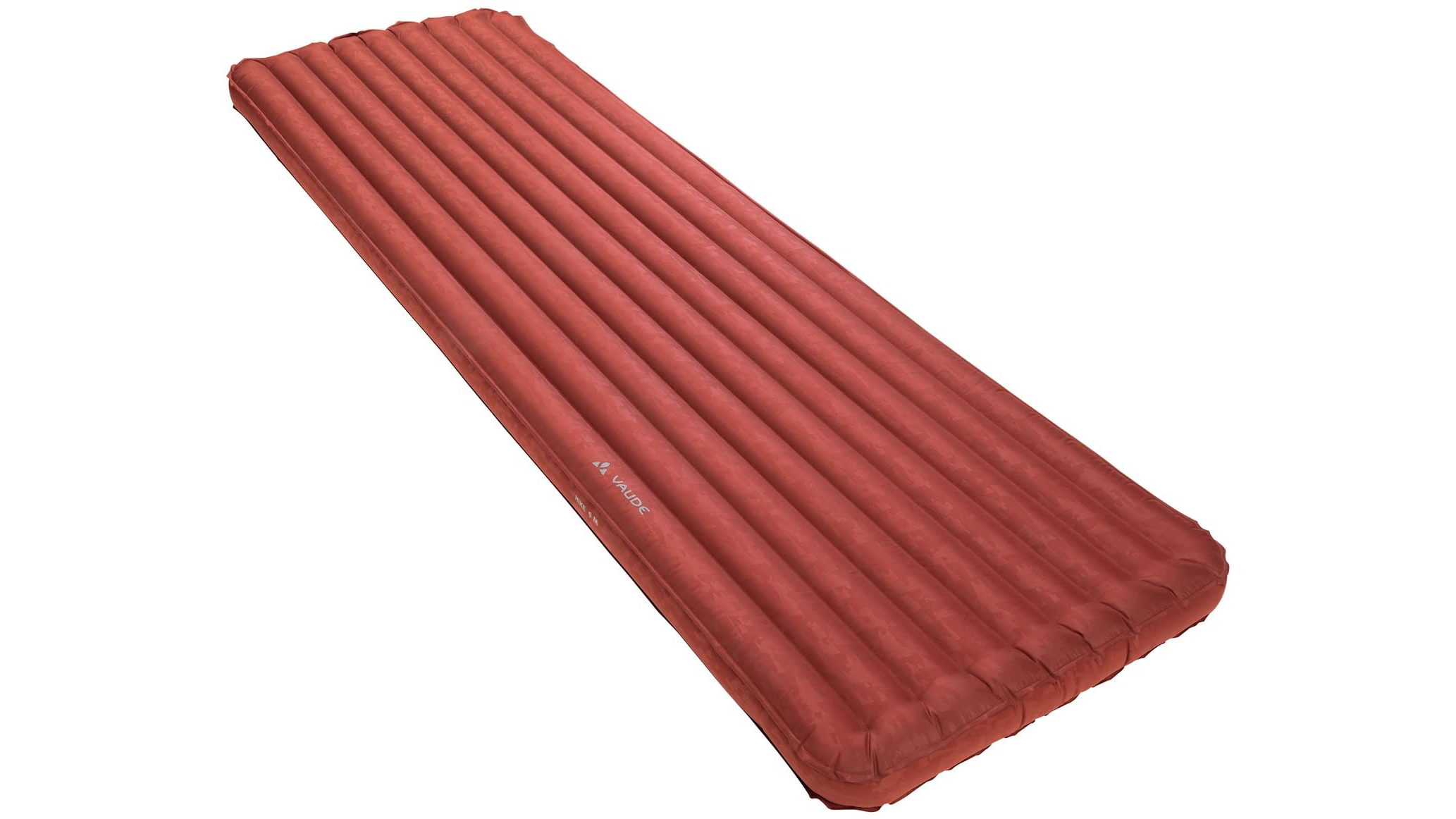Advnture Verdict
This insulated air sleeping mat is not just plush, it is positively luxurious – making it a great choice for those who want ultimate comfort in camp or on the trail from spring through to fall.
Pros
- +
Extremely comfortable
- +
Versatile
- +
Warm enough for 3-season use
- +
Five-year guarantee
Cons
- -
Not quite as stable as some mats
- -
Pump sack sold separately
You can trust Advnture
First impressions
The Vaude Hike 9 sleeping pad is a thick, plush mat that promises maximum comfort whilst also balancing other factors like warmth, weight, pack size and price. Admittedly, despite being marketed as lightweight, it sits at the heavier end of all the mats we tested, but it is actually surprisingly packable.
Part of that weight can also be accounted for by the fact that it is filled with a synthetic insulation that gives the mat an R-value of 2.5, which makes it suitable for two to three-season use, down to temperatures approaching freezing.
- Get a good night's sleep with the best sleeping bags
- Lie down in comfort with the best sleeping pads
- Prepare for your next adventure with our camping checklist
That offers more versatility than lighter, uninsulated mats like the Trekology UL80 or the Vango Aotrom, and betters the performance of foam mats like the Thermarest Z-Lite Sol as well as insulated rivals like the Sierra Designs Granby Insulated and the Thermarest NeoAir Uberlite in terms of rated warmth.
Uniquely among the sleeping mats we’ve tested recently, this mat employs a rectangular 3D construction, with pronounced sidewalls. This design has some key benefits, as we found on test, though it also introduces extra seams, which might pose a potential failure point. However, the mat has a limited five-year guarantee and is supplied with a field repair kit.
• RRP: £100 (UK)
• Style: Insulated air mat
• Weight (medium): 850g /1lb 14oz
• Variants: Medium/large
• Dimensions (medium): 183cm x 55cm / 72in x 21.6in
• Thickness: 9cm / 3.5in
• Pack size: 15cm x 24cm / 6in x 9.4in
• R-value: 2.5
• Compatibility: 2-/3-season
In the field
Though its overall dimensions are similar to many of the other mats we tested, the Hike 9 felt a lot roomier than most. We attributed that to the mat’s 3D rectangular profile, which gives a noticeably larger sleeping surface.
The sensation is close to sleeping on a conventional mattress. It also means that a pair of these mats butt up neatly together, eliminating annoying gaps and maximising space if you and a partner are sharing a tent.
The impressive 9cm thickness made it extremely comfortable all night long, and we’d put it up there with our top pick in terms of comfort, the Sea to Summit Ether Lite XT Insulated. It only loses out to that mat because the Hike 9’s longitudinal baffles don’t feel quite as stable as the dot welded construction of the Sea to Summit mat. This wasn’t an issue apart from the occasional wobble.
All the latest inspiration, tips and guides to help you plan your next Advnture!
Despite the volume of air that the mat can accommodate, it’s easy to blow up and deflate. The valve plug is a fairly simple but effective design that is equipped with a handy pointed tip, which can be inserted to hold the one-way valve open, allowing for rapid deflation.
It does take a fair bit of puff to blow it up, although it is compatible with a pump sack, though slightly annoyingly this is sold separately rather than being bundled with the mat.
Still, there was very little not to like, and if this mat was just a few hundred grams lighter and possibly slightly warmer it would have been a real contender for our best in test pick. But it’s worth pointing out that this is probably the most comfortable mat you can buy at this price point.
So, if you’re looking for a decent night’s sleep without paying absolute top dollar, this is the mat to go for.
An outdoors writer and editor, Matt Jones has been testing kit in the field for nearly a decade. Having worked for both the Ramblers and the Scouts, he knows one or two things about walking and camping, and loves all things adventure, particularly long-distance backpacking, wild camping and climbing mountains – especially in Wales. He’s based in Snowdonia and last year thru-hiked the Cambrian Way, which runs for 298 miles from Cardiff to Conwy, with a total ascent of 73,700 feet – that’s nearly 2½ times the height of Everest. Follow Matt on Instagram and Twitter.


